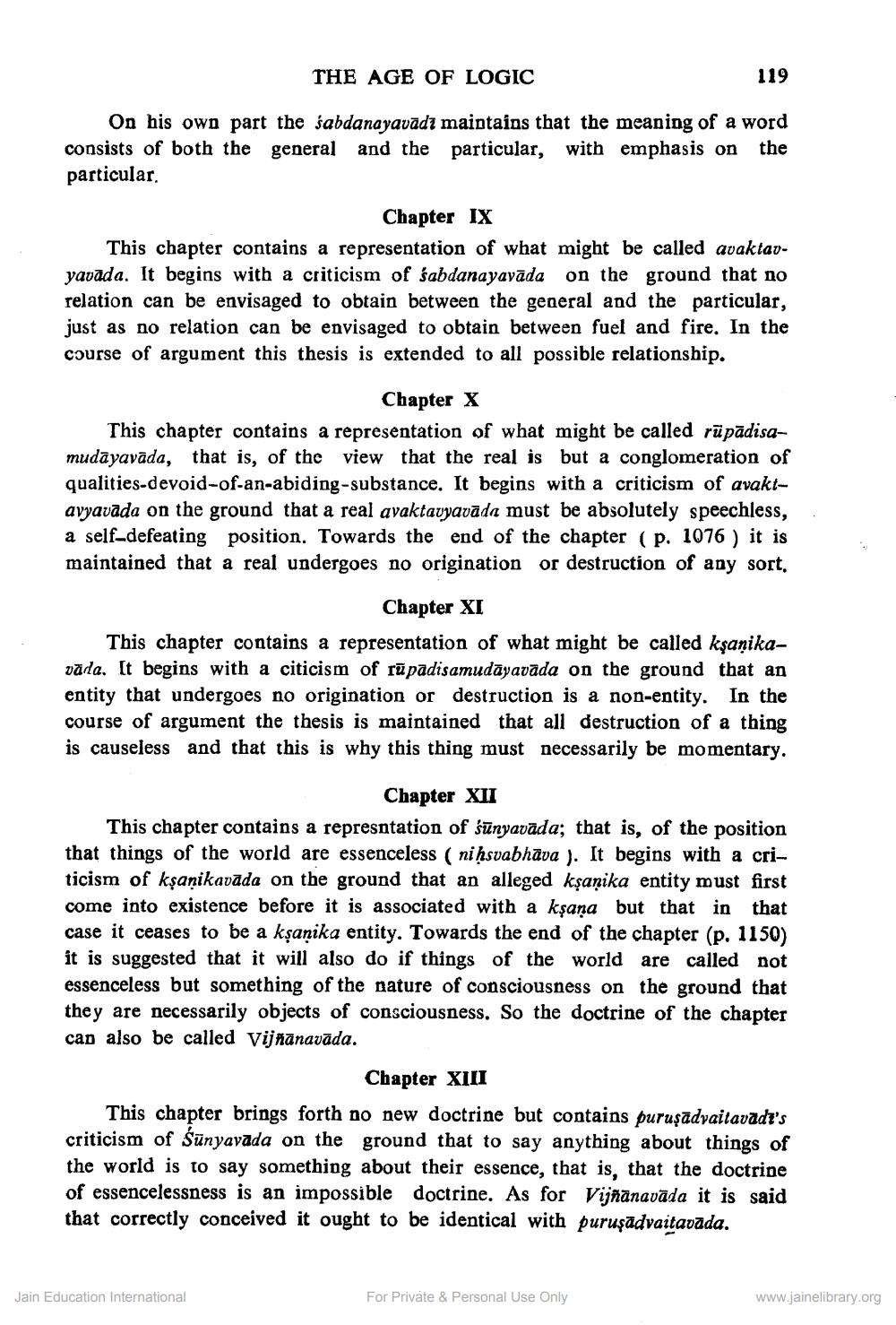________________
THE AGE OF LOGIC
119
On his own part the sabdanayavādi maintains that the meaning of a word consists of both the general and the particular, with emphasis on the particular
Chapter IX This chapter contains a representation of what might be called avaktavyavada. It begins with a criticism of sabdanayavāda on the ground that no relation can be envisaged to obtain between the general and the particular, just as no relation can be envisaged to obtain between fuel and fire. In the course of argument this thesis is extended to all possible relationship.
Chapter X This chapter contains a representation of what might be called rūpādisamudayavāda, that is, of the view that the real is but a conglomeration of qualities-devoid-of-an-abiding-substance. It begins with a criticism of avaktavyavada on the ground that a real avaktavyavāda must be absolutely speechless, a self-defeating position. Towards the end of the chapter (p. 1076 ) it is maintained that a real undergoes no origination or destruction of any sort,
Chapter XI This chapter contains a representation of what might be called kşanikavāda. It begins with a citicism of rūpadisamudayavada on the ground that an entity that undergoes no origination or destruction is a non-entity. In the course of argument the thesis is maintained that all destruction of a thing is causeless and that this is why this thing must necessarily be momentary.
Chapter XII This chapter contains a represntation of sūnyavāda; that is, of the position that things of the world are essenceless ( niņsvabhāva ). It begins with a criticism of kşanikavāda on the ground that an alleged kșanika entity must first come into existence before it is associated with a kşana but that in that case it ceases to be a kşanika entity. Towards the end of the chapter (p. 1150) it is suggested that it will also do if things of the world are called not essenceless but something of the nature of consciousness on the ground that they are necessarily objects of consciousness. So the doctrine of the chapter can also be called vijnanavāda.
Chapter XIII This chapter brings forth no new doctrine but contains puruşadyaitavadt's criticism of Sünyavada on the ground that to say anything about things of
world is to say something about their essence, that is, that the doctrine of essencelessness is an impossible doctrine. As for Vijñānavāda it is said that correctly conceived it ought to be identical with puruşādvaitavada.
Jain Education International
For Private & Personal Use Only
www.jainelibrary.org




